watch now!
A place where I discuss all things related to toddlers and motherhood!
Subscribe to my Youtube channel
As a clinical psychologist, published author, and mother to two cheeky young children, I get it. I’ve spent YEARS researching and filtering through the noise online, so you don’t have to.
PARENTING TIPS
POTTY TRAINING
ANTIRACISM
PLAY
Blog Topics
SIBLING RIVALRY
SCREEN TIME
TANTRUMS
DISCIPLINE
Hi I'm Dr. Jazmine
Building Resilience in Children Amidst Divorce | Research-Based Strategies for Parents
topics:
Blog Article Written by Karey O’Hara, Assistant Professor of Psychology at Arizona State University.
Navigating the journey of separation and divorce brings its own set of challenges, and as a parent, a predominant concern often lingers: “What can I do to ensure the very best for my children, whom I love more than anything?” This question resonates deeply with many of you, reflecting a universal priority—the well-being of your children.
Understanding the ‘how’ rather than focusing solely on the ‘what’—that is, the process of divorce—is pivotal. It’s this approach that holds the transformative power in shaping your children’s experience.
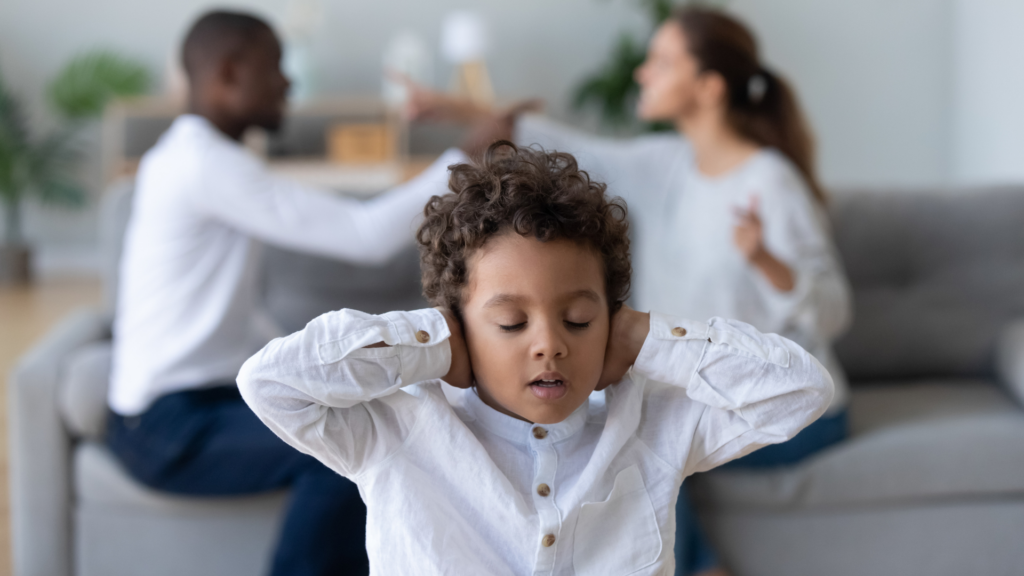
A New Perspective on Divorce and Children
For decades, society has grappled with the question: Is divorce bad for kids? Research from the mid-80s painted a somewhat alarmist picture, suggesting lifelong troubles for children of divorce. However, these early studies had their flaws, leading to biased conclusions. Subsequent research over almost four decades tells us that while divorce does increase risks, the impact is more nuanced.
Most children who experience divorce show resilience, with only a small subset facing long-term difficulties. Considering the high prevalence of divorce—it’s estimated that by age 16, half of all children in the U.S. will experience their parents’ divorce or separation—it’s crucial to find ways to support these families effectively.
Coping, Conflict, and Connection: The Three Pillars
Research-based ways to support your children through this family transition involves focusing on three key areas: coping, conflict, and connection. These are the avenues through which you, as parents, can significantly mitigate potential negative outcomes for your children.
Coping
Children’s ability to cope with stress plays a critical role. Encouraging and modeling adaptive coping strategies creates a buffer zone, helping them deal with stress more effectively. To help children handle the stress of divorce better, it’s crucial to teach them how to deal with problems that they can’t control. Some of these uncontrollable stressors that children often face after a divorce include financial problems, arguments between parents, and moving to a new home or school.
It’s especially important to make sure children
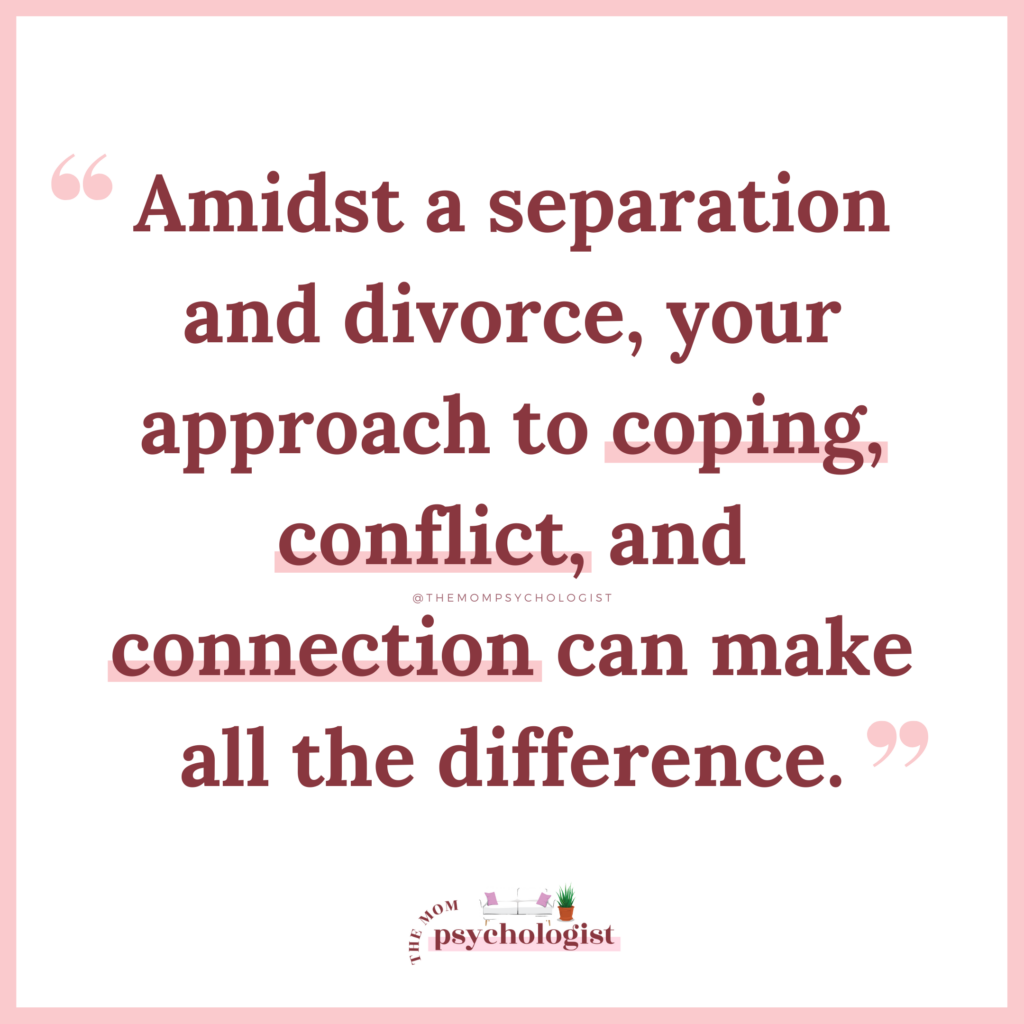
understand that they shouldn’t blame themselves or feel like it’s their duty to solve these problems. Many children tend to think this way, and it’s essential to reassure them that it’s not their responsibility.
What does this look like?
- Model. Demonstrating healthy emotional regulation is key. By openly showing how you manage your own emotions, children learn to mimic these strategies.
“I’m feeling stressed and overwhelmed right now. I’m going to take some deep breaths to calm my body so I can make the best decision about what to do next.” - Label & Validate. Acknowledging and validating a child’s feelings helps them understand and accept their emotions. It also shows empathy and strengthens the parent-child bond.
“I’m wondering if you are feeling scared right now. That makes sense.”
“You look like you feel angry right now – did I get that right?” - Coach. Guiding children towards strategies that can help them cope with their emotions teaches them how to find what works for them. Suggest activities or thoughts that can lead to emotional relief.
“I wonder if listening to your favorite song right now might help you feel better. Let’s try it.”
“Is your mind telling you something that is helpful or hurtful? Let’s find another way to think about it that feels less overwhelming. - Not My Job. First, teach your child the concept of “Not My Job” by explaining that some problems, like parents arguing, are for adults to handle, not children. Next, help them sort common divorce-related stressors into “My Job” and “Not My Job” categories. Third, practice with real-life examples, using a decision tree as a guide. Lastly, take time to praise your child for using this new skill.
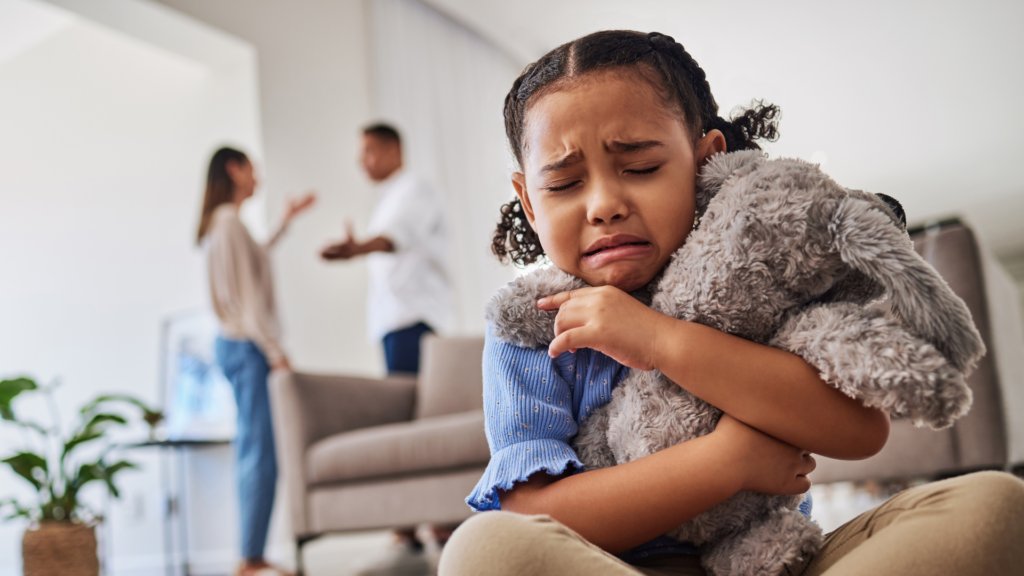
Conflict
The extent and nature of interparental conflict, both overt and covert, is a significant factor influencing children’s well-being. Frequent, intense, and unresolved conflicts, particularly those centered around the children, pose considerable risks.
What does this look like?
- Pre-plan Parental Interactions. Avoid discussing contentious issues in front of the kids. If the conversation starts to veer off-course, suggest discussing sensitive matters at a later time.
- Direct Communication Only. Communicate directly with your child’s other parent via calls, texts, or emails—never through your children. Specialized apps are available to help facilitate co-parenting conversations. Don’t use your kids as messengers or spies. All communication about parenting should be between adults only.
- Avoid Subtle Conflict. Bite your tongue on questions that may subtly disapprove of the other parent’s actions. You don’t want to put your children in a position to feel like they must pick sides.
- Be Mindful About Divorce Details. Share only what’s age-appropriate about the divorce. Skip the blame game and keep the focus on upcoming changes and arrangements.
“There are a lot of changes happening in our family right now. I will tell you anything you want to know about what is going to change and what is not going to change.” - It’s Not Their Fault. Explicitly tell your kids the divorce isn’t their fault. Children may sometimes blame themselves, so clear, direct reassurance is essential.
“We have decided not to be together anymore and might have a hard time getting along for a little while but it has nothing to do with you. Let’s talk about the schedule this weekend.” - Kids Aren’t Confidants. Keep your emotional struggles away from your children. Find a friend or professional to confide in, so your kids don’t feel pressured to help manage your emotions.
“Yes, I am feeling sad right now, but I will be okay. You don’t need to worry about me.” - Alert Your Inner Circle. Inform your friends and family to refrain from speaking negatively about your child’s other parent, especially within earshot of the kids. You’d be surprised how much children can pick up on.
“I really appreciate that you are supporting me but it’s important to me that my children don’t feel bad when they hear us say negative things about their other parent.” - Let Them Love Both Parents. One of the greatest gifts you can give your children is the explicit permission and support to love their other parent, despite how you may feel about them. Remember that actions can speak louder than words.
Connection
Maintaining strong, warm, and communicative relationships with your children is paramount. This includes being approachable, good listening, showing love and affection, using effective discipline strategies, and establishing consistent routines.
What does this look like?
- Be Your Child’s Safety Net. In times of stress, emotional support is a game-changer. Consistent emotional availability can help a child feel secure and understood. Even if your child doesn’t want to talk about the divorce, let them know that you are there when they are ready.
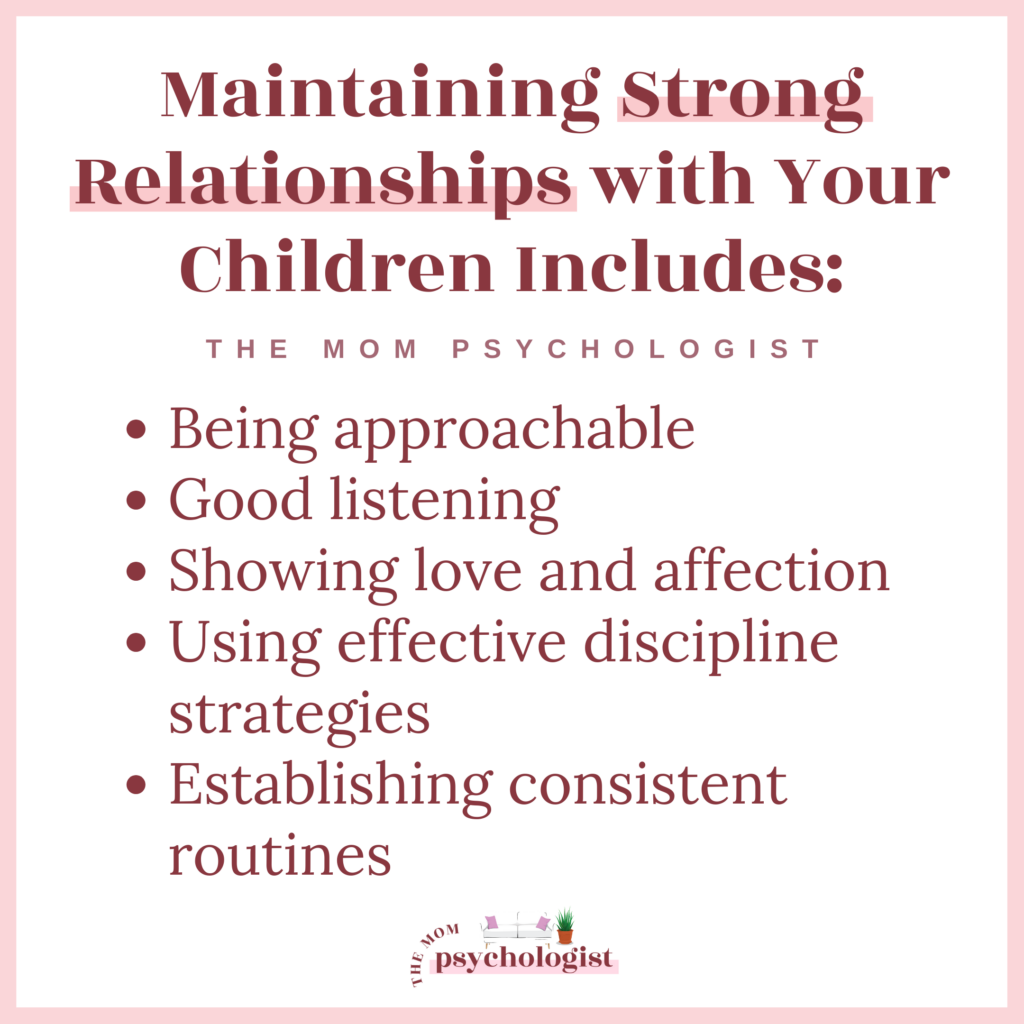
“The changes in our family can be tough to handle. I’m here whenever you want to talk. You can say anything you are thinking about to me.”
- Listen with Big Ears. Offer your undivided attention when your child speaks to you. If you can’t listen fully, let them know that you want to hear what they have to say and postpone the conversation for when you can listen with big ears.
“I really want to hear what you think about this but I am cooking dinner right now so it’s hard for me to listen well. Let’s talk about this in five minutes when I’m done. I will let you know when I am ready to listen” - Encourage them to Keep Talking. Ask open-ended questions to encourage more communication from your children. Use verbal and nonverbal cues to keep them talking.
“And then what happened next?”
“Uh, huh.” Oh really?” “Wow!”
“Tell me more.” - Be Emotionally Supportive. Make it okay for your kids to share their feelings. Validate their emotions by acknowledging and confirming you understand how they feel.
“Whatever feelings you have right now are okay.”
“It seems like you are upset, is that right?” - Maintain Structure, Predictability, and Rules. Routine offers a sense of normality. Keeping a consistent schedule, upholding house rules, and preserving key routines can help create a sense of stability.
- Family Hour: Set aside an hour every week for family fun, which could be as simple as a picnic or board game, to strengthen family bonds. The key is that it is planned in advance, only involves the people who live in your house, and focuses on interaction and conversation (hint: movie dates are fun but not for family hour!).
- Catch Them Doing Good. Recognize and praise your children’s positive behaviors to boost their self-esteem and reinforce the behaviors you want to see more often.
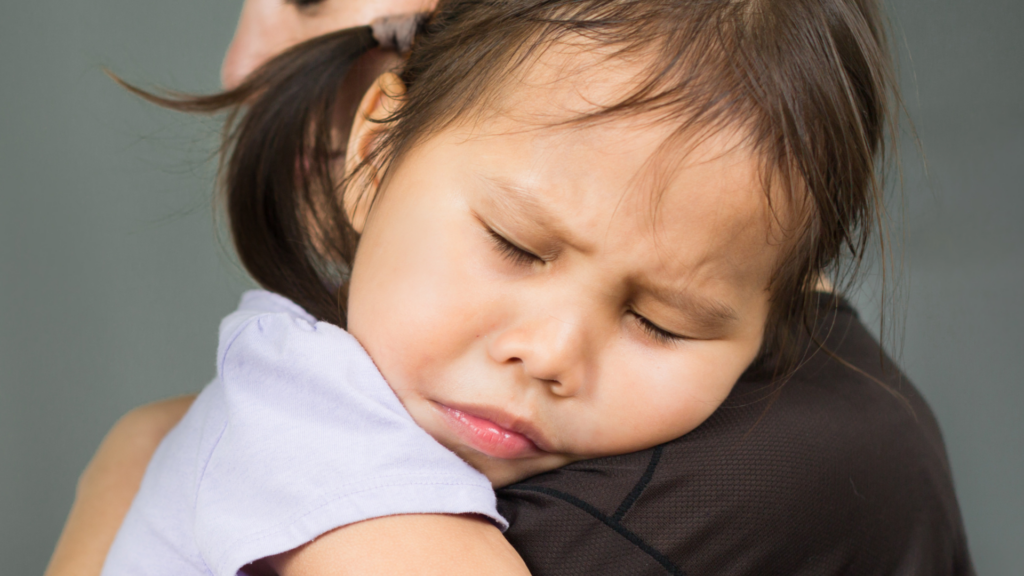
Take-home Message
The power of parenting is unmatched. You possess everything your children need to build resilience in the face of stress. Amidst a separation and divorce, your approach to coping, conflict, and connection can make all the difference.
Online Resources and A Paid Research Opportunity
Empowering Parents: The New Beginnings Program.
Recognizing the critical role you play, the New Beginnings Program, developed by researchers at ASU, is a remarkable resource now available online. With over 20 years of research and four randomized controlled trials, this program has shown significant effects in reducing children’s mental health problems, improving educational achievement, social functioning, and preventing substance use. Its benefits are long-lasting, with ongoing studies examining impacts on the next generation.
Teaching Children Coping Skills: Project Brain Team.
Researchers at Arizona State University are testing new online games designed to help children cope with the emotional impact of parental separation and divorce! If you have a child aged 9-12, you might be eligible to join. Participation includes you and your child doing surveys, phone calls, and daily reports for six weeks. Eligible families can get up to $300 in electronic gift cards, and children will get prizes throughout the project. Participation is voluntary. Learn more here.
Research Translated: Practical Tools and Insights on YFaCS Lab Instagram
The Youth and Families in Court Systems Lab at Arizona State University has a new Instagram page where they will be translating research into practical tools and insights for parents facing separation and divorce. Content will start in early 2024, don’t miss out! Follow here.
Was this helpful? Save it for later!
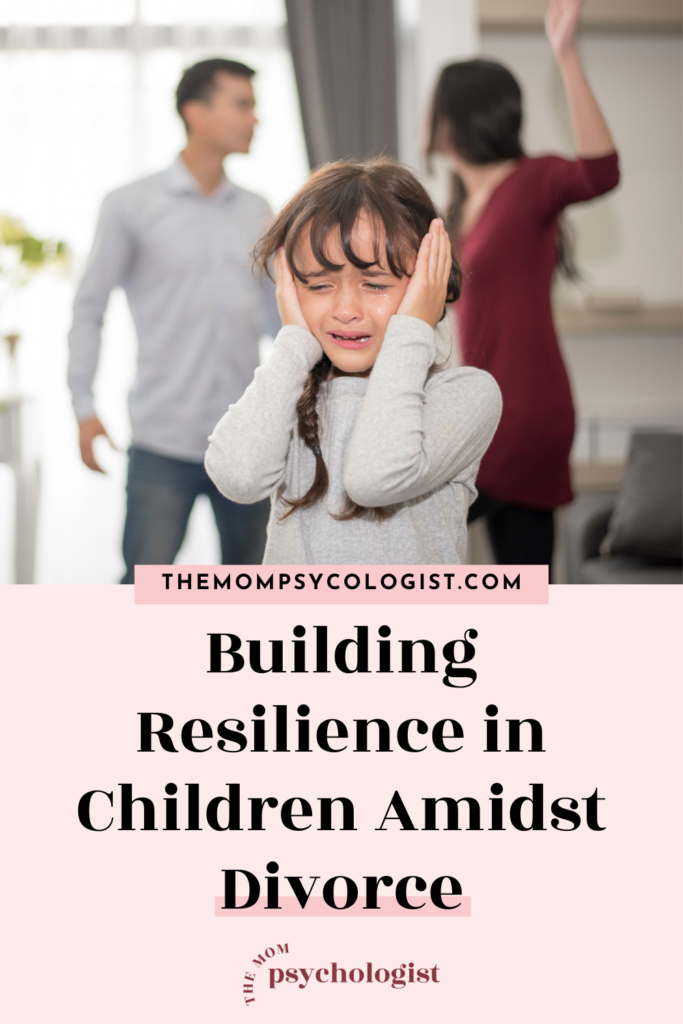
Leave a Reply Cancel reply
Copyright The Mom Psychologist® 2025
grab my free script pack!
explore
work with me
information
About
Blog
YouTube
Podcast
TMP University (Coaching)
Privacy Policy
Terms of Use
Product Disclaimer
Contact
TMP Times (Newsletter)
Apparently, I’m in that “small subset”
I’m almost 70 years old, and have never gotten over my parents divorce. (1967)